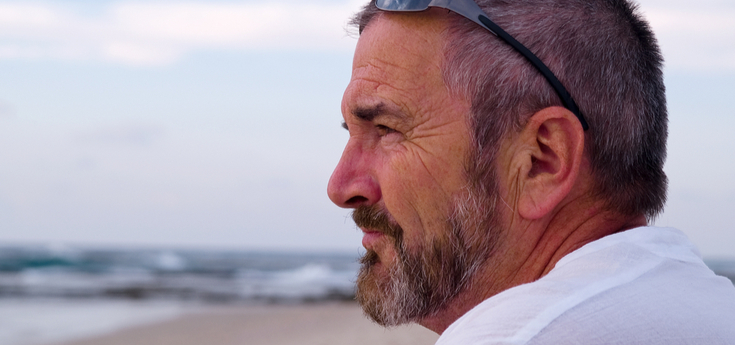Mindfulness meditation has many physical and mental benefits for older adults, including improved wellbeing, focus, memory, calmness and sleeping patterns. There is also much research that shows mindfulness reduces depression and stress. Here’s how mindfulness can help you.
Improves memory and slows Alzheimer’s progression
Meditation stimulates the hippocampus and other regions of the brain associated with your short and long-term memory. Studies have shown that practising mindful meditation can slow the progression of Alzheimer’s and cognitive decline as it activates the prefrontal cortex, the area associated with decision-making, problem-solving, analytical thinking and emotional regulation. What a great reason to mediate!
Reduces stress
When you practise mindful meditation, you deactivate the regions of the brain associated with the ‘fight and flight’ response, which ultimately helps you to regulate your stress levels better. When you function with less adrenaline and cortisol in the body, you also reduce the risk of cardiovascular problems, reduce inflammation, improve digestion and generally stay healthier on the inside.
Helps you become more present
As you age, you may start to worry about the future more and that can hijack your ability to stay present with ‘what is’ happening in the present moment. You may project yourself in all sorts of ‘what if’ scenarios and this can trigger anxiety and poor mental health. The more you practise mindfulness, the better you get at experiencing life as it is in the present moment and appreciating everything you have in front of you. You become an observer of your thoughts and are able to stop them carrying you away elsewhere.
Encourages you to enjoy life’s simple pleasures
Mindfulness also teaches you to enjoy the simple pleasures in life, such as taking a walk, eating a nice meal and being with friends and family. Mindfulness is not only about closing your eyes and following your breath, it’s also about simply enjoying your daily activities with more attention and focus. It’s never too late to get started with a mindfulness practice and it is a relatively easy practice to learn no matter what your age or level of experience.
So, where to start with mindfulness?
Five minutes seated or lying down practice
Choose a time of the day – it might be morning or before bed – where you will simply take five minutes to ‘stop’, close your eyes and follow your breath. Anchor your mind on where you feel the breath the most and keep your attention there. It’s normal that thoughts may come and go, when they do, simply bring your attention back to your breath time and time again. Sometimes listening to an audio can help. The body scan is a really good place to start.
Everyday mindfulness
Every day, we do so many things on auto pilot or default mode, and this is not good for us as we lose the opportunity to experience life in the present moment. To train your attention muscles, choose one thing that you do every single day, such as brushing your teeth, having a shower, eating breakfast, doing your hobbies, having a cup of tea and so on, and do that one thing more mindfully.
Give it your full attention and you will be surprised at how much more you will enjoy it. This also trains you to stay focused on one thing. Research says we are the happiest when we are engaged in the task we are doing, as opposed to ruminating or worrying about other things.
Remember, it’s never too late to get started and it is such an easy practice to initiate with profound benefits. And best of all, it’s free. You always have your body and breath on you.
Are you able to focus and stop your brain running amok with dozens of thoughts? Can you see the benefits of mindfulness exercises?
Melo Calarco has been teaching mindfulness to a wide range of people including senior executives, corporate companies, athletes, and even primary school students for the past 25 years. He has also taught mindfulness in retirement homes, incorporating mindful movement to help participants to become present through the combination of gentle body movements incorporated with breathing exercises.
If you enjoy our content, don’t keep it to yourself. Share our free eNews with your friends and encourage them to sign up.
Related articles:
https://www.yourlifechoices.com.au/could-this-be-a-key-to-retirement-bliss
https://www.yourlifechoices.com.au/health/wellbeing/technology-can-help-you-tidy-your-home
https://www.yourlifechoices.com.au/lifestyle/volunteering/how-to-be-a-good-carer

